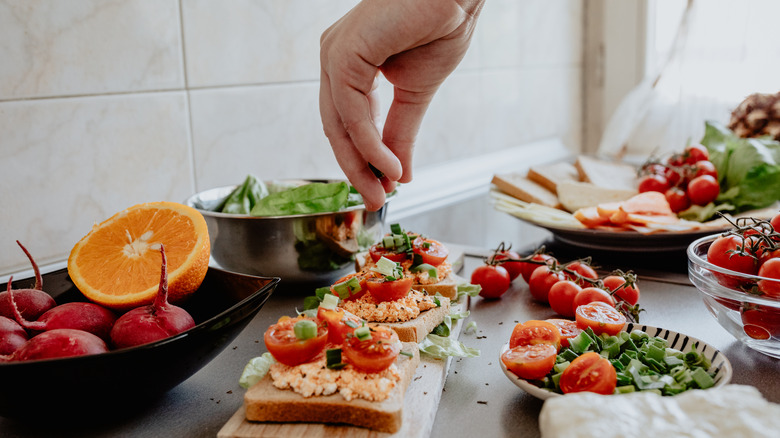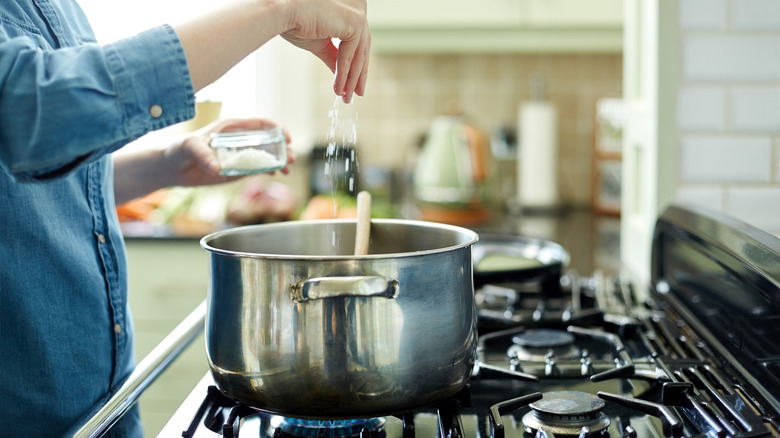There's A Big Difference Between Adding Flavors And Enhancing Them
The first juicy bite of a sweet berry tart, a hearty slurp of hot and sour soup, a spoonful of a savory umami mushroom risotto — any food lover can think back fondly to the most delicious, well-flavored bites of your life. Those memorable meals were just that thanks to the expert flavoring of the dish. To master the art of balanced, well-flavored meals, it's worth understanding how various ingredients play up flavor in different ways. It's not as simple as reaching for the salt and pepper shakers or throwing on some Tabasco sauce. In fact, some additions create flavor of their own, modifying the original taste of an ingredient, while others enhance flavors of food by waking up our taste buds and unlocking our ability to experience heightened complexity.
Adding spices like cinnamon or cumin, fresh basil or mint, the kick of a hot sauce, or tangy chutney are all examples of adding new taste sensations. On the other hand, ingredients like salt and acids work to bring out or enhance existing notes and balance the overall flavor. There's a world of difference between ingredients and add-ins that impart unique flavor into a dish, versus those that allow our taste buds to better experience underlying tastes and sensations. And don't worry, you don't have to be a top chef or a food scientist to put this knowledge to use and elevate your next weeknight dinner.
Salt, acid, and fat can all enhance flavor
Salt enhances flavor by diminishing bitterness and dialing up other tastes — making sweet, sour, or umami more pronounced (hello, flaky salt on chocolate). It also helps release aromatic molecules of the food. Acids are another heavy hitter in your flavor-enhancing toolbox. Think of them as a cheat code to turn up the volume of a dish's flavor while providing balance — and why recipes often call for a splash of vinegar or a squeeze of citrus. Much like salt, acids enhance flavors by muting any bitterness and balancing sweetness or fat, adding liveliness and complexity to almost anything.
Cooking methods themselves also play a role in adding flavor. Grilling, smoking, roasting, searing meat, or caramelizing onions all alter the taste without the need for additional ingredients. Fats can help illustrate this concept. They generally don't have a strong taste of their own but can bolster flavors and add needed richness. What would a croissant be without butter?
Whether you're adding to or enhancing your dishes, pay attention to the quality of your ingredients. For example, dried herbs or spices can lose their luster. If you find their vibrancy dimming, it could simply be time to replace them. And with all things culinary, no two people's taste buds are alike, so it always pays to experiment in the kitchen as you work to become the ultimate flavor master.

